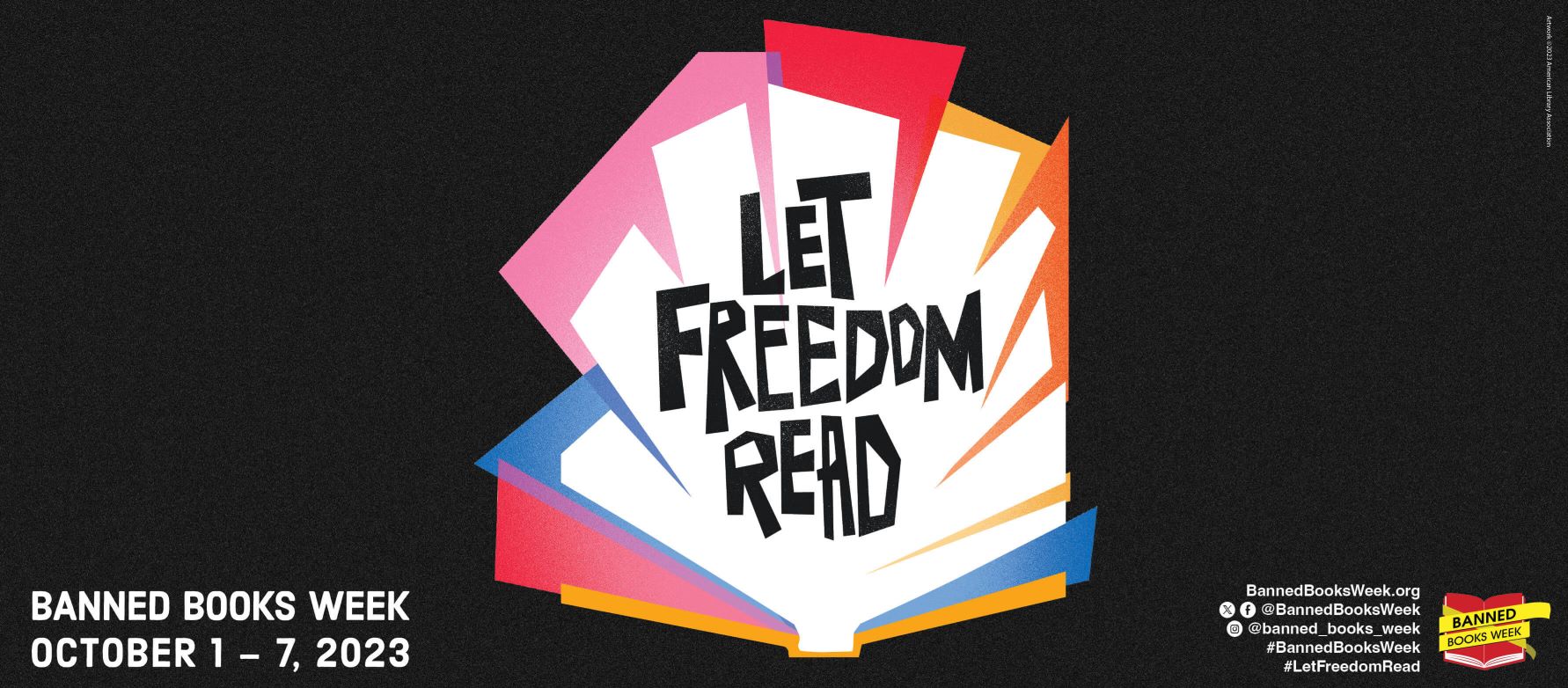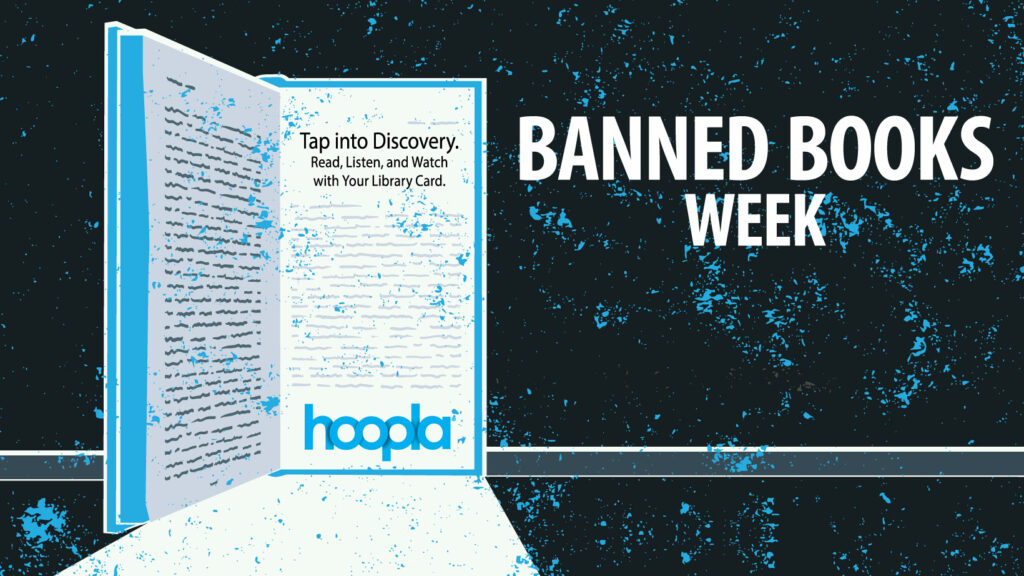
Banned Books Week October 1- October 7
Banned Books Week was launched in 1982 in response to a sudden surge in the number of challenges to books in libraries, bookstores, and schools. Banned Books Week is an annual event that highlights the value of free and open access to information and brings together the entire book community — librarians, educators, authors, publishers, booksellers, and readers of all types — in shared support of the freedom to seek and to express ideas.

What Are Book Bans?
A book ban is the practice of prohibiting access to a particular book. This usually includes removal from a school or public library. Some public libraries may try to allow patrons to access digital copies of banned books through online platforms like Hoopla or Libby, but those avenues are also being targeted by lawmakers to completely block access to books that have been pulled from the physical shelves.
What Are Book Challenges?
A book challenge is an attempt to remove or restrict access to a specific book. This is the first step toward banning a book, so it’s best to act fast before the book reaches banned status. Books may be challenged for various reasons, with the most common being sexual, LGBTQ+, or racist content, although some are simply attacked for what one person or group of individuals deems to be inappropriate.
By focusing on efforts across the country to remove or restrict access to books, Banned Books Week draws national attention to the harms of censorship. The ALA Office for Intellectual Freedom (OIF) compiles lists of challenged books as reported in the media and submitted by librarians and teachers across the country. The Top 13 Most Challenged Books of 2022 are:
- Gender Queer by Maia Kobabe Reasons: LGBTQIA+ content, claimed to be sexually explicit
- All Boys Aren’t Blue by George M. Johnson Reasons: LGBTQIA+ content, claimed to be sexually explicit
- The Bluest Eye by Toni Morrison Reasons: depiction of sexual abuse, claimed to be sexually explicit, EDI content
- Flamer by Mike Curato Reasons: LGBTQIA+ content, claimed to be sexually explicit
- (TIE) Looking for Alaska by John Green Reasons: Claimed to be sexually explicit, LGBTQIA+ content
- (TIE) The Perks of Being a Wallflower by Stephen Chbosky Reasons: Claimed to be sexually explicit, LGBTQIA+ content, depiction of sexual abuse, drugs, profanity
- Lawn Boy by Jonathan Evison Reasons: LGBTQIA+ content, claimed to be sexually explicit
- The Absolutely True Diary of a Part-Time Indian by Sherman Alexie Reasons: Claimed to be sexually explicit, profanity
- Out of Darkness by Ashley Hope Perez Reasons: Claimed to be sexually explicit
- (TIE) A Court of Mist and Fury by Sarah J. Maas Reasons: Claimed to be sexually explicit
- (TIE) Crank by Ellen Hopkins Reasons: Claimed to be sexually explicit, drugs
- (TIE) Me and Earl and the Dying Girl by Jesse Andrews Reasons: Claimed to be sexually explicit, profanity
- (TIE) This Book is Gay by Juno Dawson Reasons: LGBTQIA+ content, sex education, claimed to be sexually explicit.
When we ban books, we’re closing off readers to people, places, and perspectives. But when we stand up for stories, we unleash the power that lies inside every book. We liberate the array of voices that need to be heard and the scenes that need to be seen. LET FREEDOM READ!
Solano County Library’s Supervising Librarian, Mychal Threets, partnered with the California Governor’s Office to share this important message about the Freedom to Read:
@cagovernor Solano County Librarian @mychal puts it perfectly: students deserve to see themselves represented on bookshelves. In California, we support the freedom for kids and families to read books and learn our full history. Our libraries and librarians are protecting those freedoms. #librarytiktok #bookbans #freedomtoread ♬ original sound - California Governor
